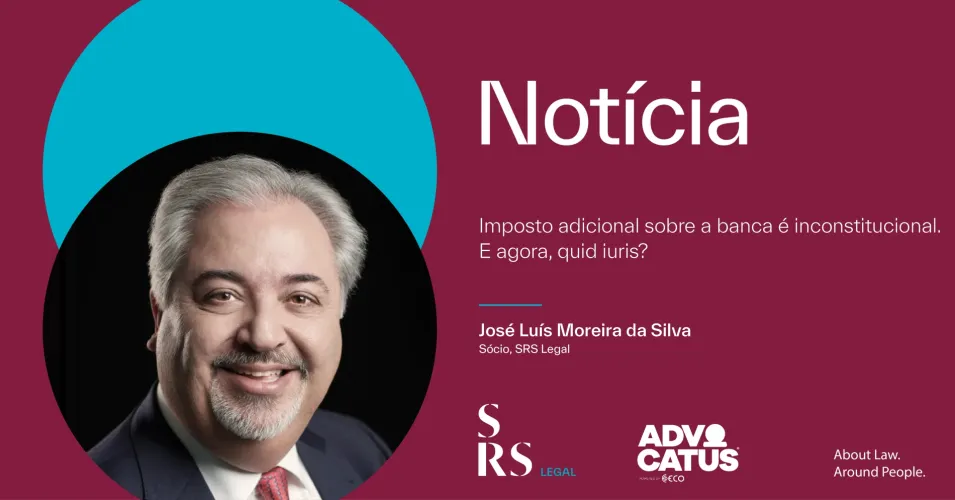Communication
Additional tax on banking is unconstitutional. And now, quid iuris? (with José Luís Moreira da Silva)
«[... ] However, these new arbitral decisions in 2023 go a step further by also adjudicating the very rules that created the tax as unconstitutional on the grounds that they violate the principles of tax equality and proportionality, breach the prohibition of arbitrariness and ability to pay, and can also be characterized as disproportionate. It was understood that the same outcome could have been achieved in a less burdensome manner without introducing yet another new tax (the scope of stamp duty applicable to banking transactions could have been altered), as there is no specific relationship between banking (the subjective scope of the tax) and social security (which is the purpose of generating new revenue)," explains José Luís Moreira da Silva, a lawyer and Partner at SRS Legal.
[...]
The existence of three decisions, all of which have already declared fundamental rules of the tax as unconstitutional, "though they have not yet been declared final and unappealable, as they are subject to mandatory appeal to the Constitutional Court on constitutionality issues, can and should be considered as a serious warning to the legislator and the Ministry of Finance and Social Security. The Rapporteur of the March 2023 decision was even a former Counsellor Judge of the Constitutional Court," explains lawyer José Luís Moreira da Silva.
He further adds that the issue will only be resolved "with a final decision from the Constitutional Court, although it seems to us that the arbitration decisions issued so far are well-founded and contain solid arguments. To us, the unconstitutionality of the transitory rule seems evident, as it taxes matters prior to the entry into force of the rule (the rule is from July 2020 and was intended to apply to the first semester of 2020). The broader question of the constitutionality of the tax, due to a violation of proportionality and tax equality, may warrant some discussion, as it is not clear-cut."
However, the matter of imposing taxes on specific entities, particularly banks, to finance social security could genuinely raise concerns regarding "tax equality and proportionality." The government's argument that it is merely balancing the treatment of banks with other companies, as banks are not subject to VAT, overlooks the fact that this is not always advantageous. On the contrary, banks are subject to a special stamp duty," he concluded.»





